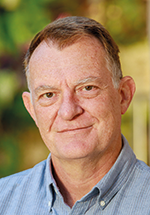
On a recent trip to Grahamstown in the Eastern Cape I was reminded, quite rudely and abruptly to be honest, of the load shedding that has plagued South Africa for the last few years. Living in KZN, we have been exempted from load shedding for the past two months after the devastation caused by the abnormal weather conditions

In the Eastern Cape I no longer had the ‘luxury’ of no load shedding and the power went off and back on again at slightly irregular intervals compared to the clockwork of the KZN schedule – turn-off time was anywhere between 5 and 15 minutes past the hour with turn on time between 1 hour 55 minutes and 2 hours 5 minutes later. This seemingly tardy switch-off time caused quite a fair amount of happiness and relief, only to be dashed a few minutes later when it did in fact turn off.
As I sit in my home office and figuratively put pen to paper, I recalled a recent article I read regarding the stage 6 load shedding currently being experienced, and the fact that it is costing the South African economy by wiping over R4 billion from the GDP per day, according to chief economist at Alex Forbes, Isaah Mhlanga. In fact, load shedding increased by a whopping 38% in 2021. This is a frightening statistic and one that South Africans can ill afford.
But what can we do about it?
I personally believe that much can be done to alleviate the problem, but it will take a Herculean effort on not only the government’s part but on individual and corporate entities as well.
The National Planning Commission recently released a report that calls for emergency efforts to be implemented to help deal with the energy crisis we are facing. They believe that 10 GW of additional power could be brought online within 2 years if certain key obstacles are removed. And what were these points you may ask? To summarise, most of the key obstacles mentioned in the report deal with government regulations and red tape that are holding back IPPs from aiding Eskom in power generation: remove the 100 MW ceiling, scrap the NERSA regulation process, streamline the environmental and water use approval process, etc.
Many other influential people and groups have called for the same thing. Dr Dirk Hermann is another who has also called for the large-scale introduction of small power producers to help resolve the country’s power crisis. But again, this cannot and will not happen until certain arbitrary regulations mentioned above are removed.
To circumvent the crisis many South Africans have made the decision to generate their own partial or full source of power at home using a variety of methods, the more common of which are solar PV cells, solar heating, and wind generation. While this is commendable, it really is not an option for the vast majority of people who firstly cannot afford such a system, and secondly, do not have the expertise to manage an off-grid or grid-tied system.
A cheaper option at home or in an office environment is to use smaller backup systems on equipment that is vital to maintaining productivity. Using a UPS for your computers, networking equipment and communication devices, or using battery backup smart lighting which remains on during the few hours of load shedding, can be implemented.
An article in the DIY and Hobbyists section of this month’s issue describes in detail how to build your own DC UPS for your home network. The cost is minimal, especially if you have a spare large-capacity battery available
I am once again reminded of the necessity of having a decent UPS connected to my sensitive networking equipment as I sit here and hear the fan of my UPS kicking in. It is not caused by load shedding but rather, as I glance at the UPS control panel, I see that once again, the incoming supply from the national grid has dropped below 208
| Tel: | +27 11 543 5800 |
| Email: | [email protected] |
| www: | www.technews.co.za |
| Articles: | More information and articles about Technews Publishing |

© Technews Publishing (Pty) Ltd | All Rights Reserved